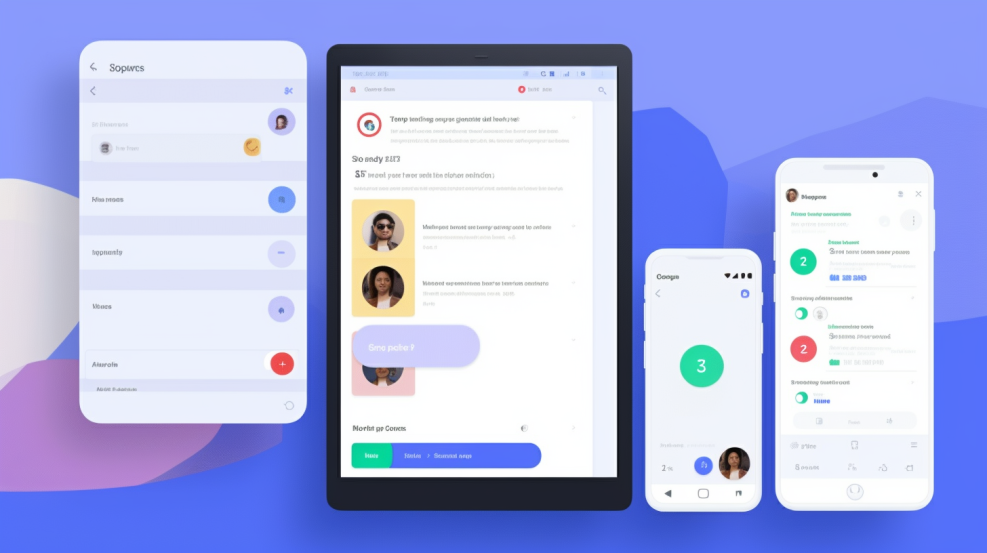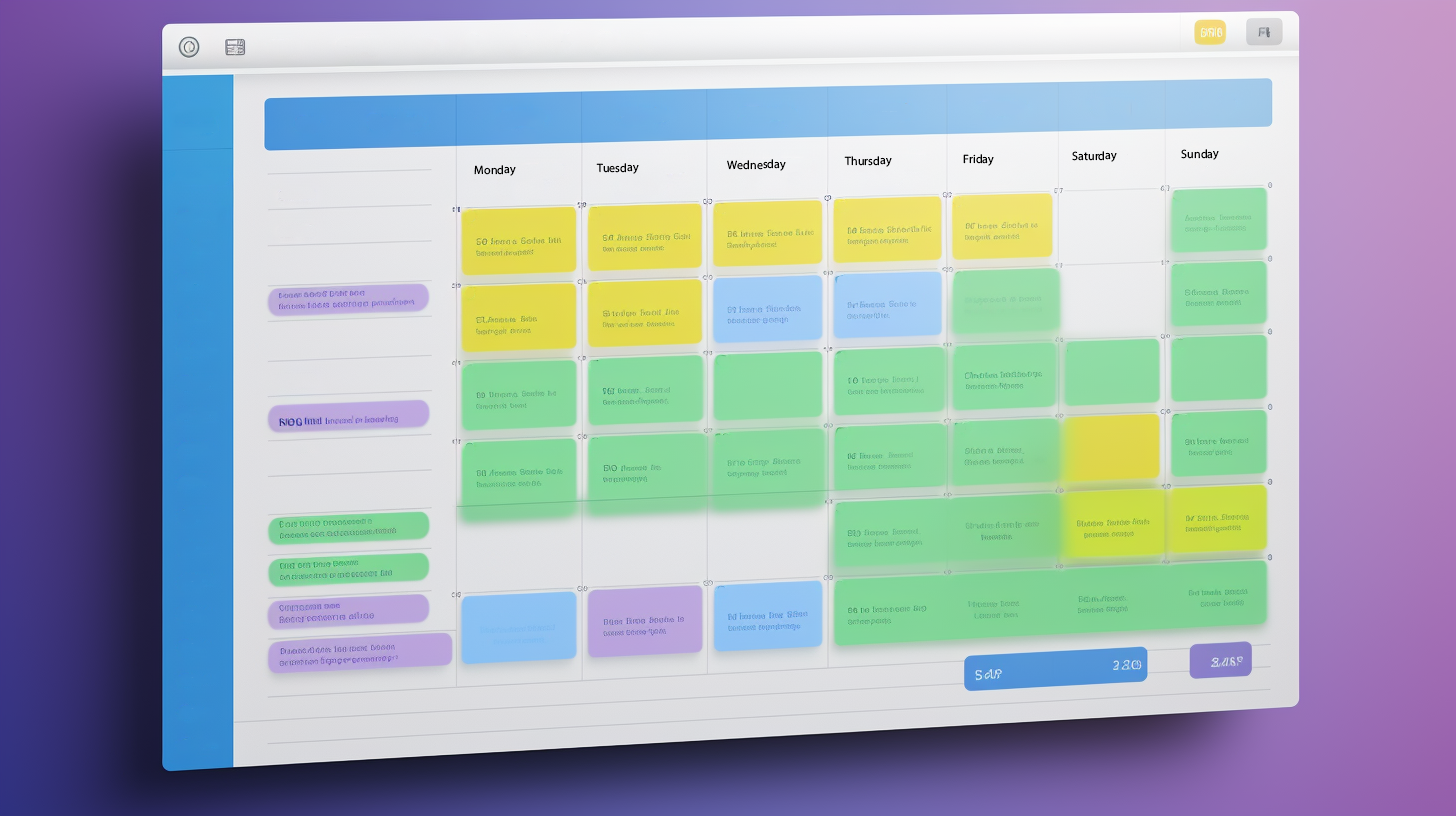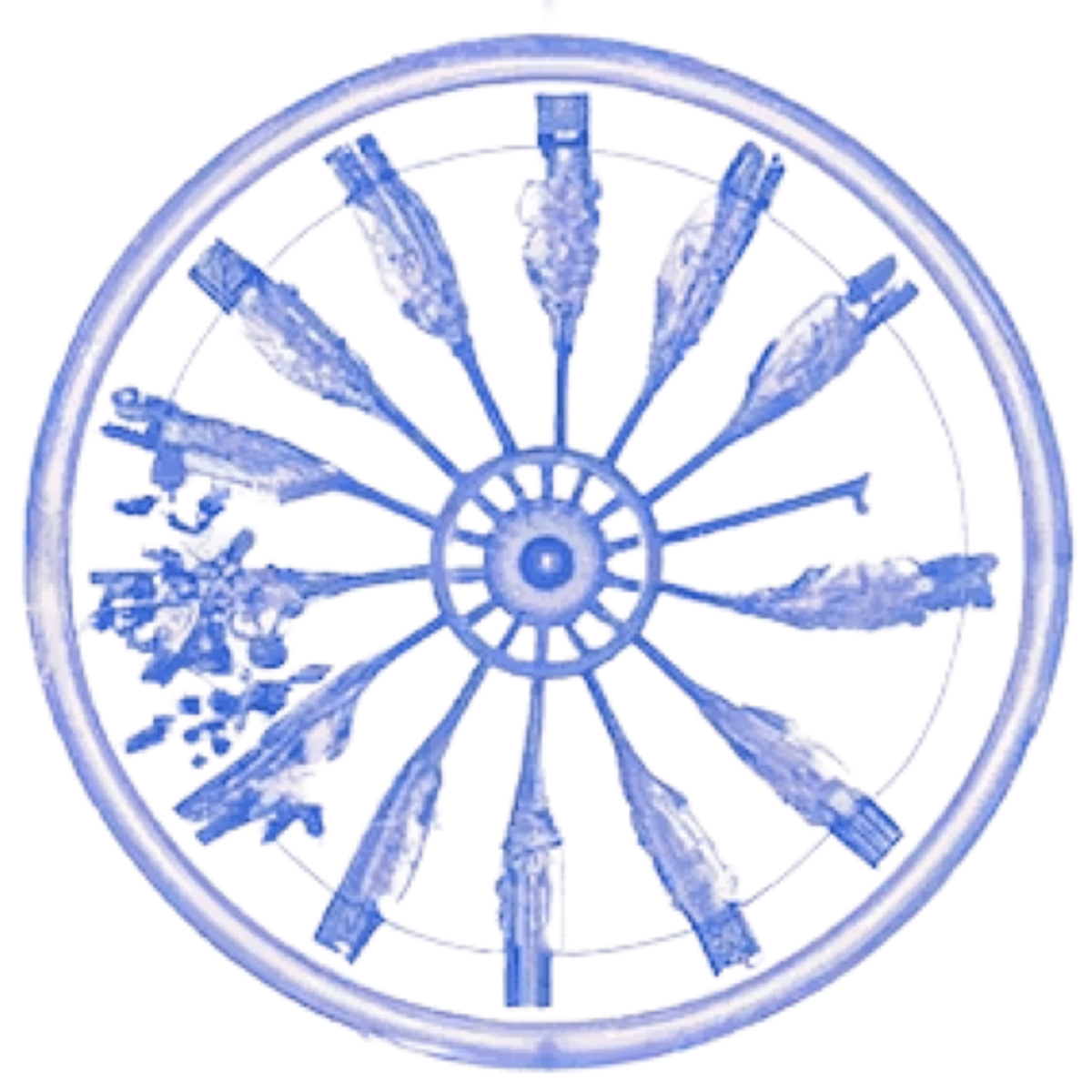Healthcare Professional
Healthcare Professional: A Comprehensive Career Guide
A healthcare professional is an individual dedicated to maintaining or restoring the physical and mental well-being of others. This broad category encompasses a vast array of roles, from those directly providing patient care, like doctors and nurses, to those managing health systems, conducting vital research, or developing new medical technologies. Their work is fundamental to public health and touches lives across communities worldwide.
Working in healthcare offers unique opportunities for intellectual stimulation and profound personal fulfillment. Many are drawn to the challenge of diagnosing complex conditions, the satisfaction of helping patients recover, or the potential to contribute to life-saving scientific discoveries. The field is dynamic, constantly evolving with new research and technologies, ensuring a path of continuous learning and development.
Healthcare Professional Roles and Responsibilities
Understanding the diverse landscape of healthcare roles is the first step in exploring this rewarding field. Broadly, these roles can be categorized based on their primary function and interaction level with patients.
Clinical vs. Non-Clinical Roles
Clinical roles involve direct patient interaction and care. This includes professionals like physicians, registered nurses, physical therapists, and paramedics who diagnose illnesses, administer treatments, and provide hands-on care. Their daily work is often centered around patient assessment, communication, and intervention.
Non-clinical roles support the healthcare system without direct patient treatment responsibilities. Examples include healthcare administrators managing hospital operations, medical coders and billers handling insurance claims, health information technicians managing patient records, and researchers seeking new medical insights. These roles are crucial for the efficient and effective functioning of healthcare services.
While distinct, clinical and non-clinical paths often intersect. Effective healthcare delivery relies on seamless collaboration between those providing care and those supporting the system behind the scenes. Understanding this distinction helps clarify potential career paths based on individual interests and skills.
Day-to-Day Realities
The daily tasks of a healthcare professional vary significantly depending on their specific role and work setting. Clinicians might spend their day examining patients, performing procedures, charting observations, and collaborating with colleagues. Their environments range from bustling hospital wards and emergency rooms to quiet clinics and patient homes.
Non-clinical professionals often work in office environments within hospitals, clinics, insurance companies, or research institutions. Their days might involve data analysis, financial management, policy development, IT support for systems like Electronic Health Records (EHRs), or laboratory work. Regardless of the setting, attention to detail and strong organizational skills are typically required.
Patient interaction, whether direct or indirect, remains a central theme. Even roles without face-to-face patient contact contribute to the overall patient experience and outcome. The work often demands adaptability, problem-solving, and the ability to handle potentially stressful situations with professionalism.
These courses can provide foundational communication skills useful in any healthcare setting, whether interacting with patients or colleagues.
Areas of Specialization
The healthcare field offers extensive opportunities for specialization. Clinicians can focus on specific patient populations (e.g., pediatrics, geriatrics), organ systems (e.g., cardiology, neurology), or conditions (e.g., oncology, infectious diseases). Further specialization often requires additional training, fellowships, and certifications.
Non-clinical roles also have specialized paths. Healthcare administrators might specialize in hospital finance, human resources, or quality improvement. Health informatics professionals focus on managing and analyzing health data, while researchers might specialize in epidemiology, genetics, or drug development. Choosing a specialization allows professionals to develop deep expertise in a particular area.
This constant drive towards specialization underscores the need for ongoing education and adaptation throughout a healthcare career. New discoveries and technologies continually shape existing specialties and create entirely new ones, demanding a commitment to lifelong learning.
Teamwork in Healthcare
Modern healthcare is inherently collaborative. Patient care rarely falls to a single individual; instead, it involves a coordinated effort among diverse professionals. Doctors, nurses, technicians, therapists, pharmacists, social workers, and administrators must work together effectively to ensure optimal patient outcomes.
Effective communication, mutual respect, and clear role definition are vital for successful teamwork. Handoffs between shifts or departments, consultations between specialists, and team meetings to discuss patient cases are common examples of collaborative practice. This interdisciplinary approach ensures comprehensive care that addresses all aspects of a patient's health.
Even research and administrative functions rely heavily on teamwork. Research projects often involve scientists from different disciplines, while hospital management requires coordination across various departments. Strong interpersonal skills are therefore as crucial as technical expertise in nearly every healthcare role.
Formal Education Pathways
Embarking on a healthcare career typically involves a structured educational journey. The specific path varies greatly depending on the chosen profession, ranging from short certificate programs to extensive doctoral studies.
Foundational Education
Success in healthcare often begins with a strong foundation in high school, particularly in the sciences and mathematics. Courses in biology, chemistry, physics, and algebra provide essential background knowledge for more advanced health-related studies. Strong reading comprehension and writing skills are also crucial for navigating complex medical literature and communicating effectively.
Maintaining a solid academic record is important, as entry into many healthcare programs is competitive. Beyond coursework, experiences like volunteering at a hospital or clinic, shadowing healthcare professionals, or participating in science clubs can demonstrate interest and provide valuable insights into the field.
These experiences help aspiring professionals confirm their interest and develop preliminary skills and understanding before committing to a specific educational track.
Higher Education Degrees
Post-secondary education is required for most healthcare roles. Options range from associate's degrees (e.g., for some nursing roles, medical assistants, technicians) to bachelor's degrees (e.g., Bachelor of Science in Nursing - BSN, public health, health administration). Many clinical professions, such as physicians, dentists, pharmacists, and advanced practice nurses, require graduate or professional degrees (e.g., MD, DDS, PharmD, DNP).
These programs combine rigorous academic coursework in areas like anatomy, physiology, pharmacology, and pathology with extensive clinical training or practical experience. The duration and intensity vary significantly; becoming a physician, for example, involves undergraduate education, medical school, and several years of residency training.
Choosing the right program depends heavily on career goals, financial resources, and time commitment. Prospective students should thoroughly research program prerequisites, curriculum, accreditation status, and outcomes.
Licensing and Certification
Most clinical healthcare professionals must obtain a license to practice legally. Licensure requirements are typically set by state or national boards and involve graduating from an accredited program, passing a comprehensive examination (e.g., the USMLE for physicians, NCLEX-RN for registered nurses), and meeting other criteria like background checks.
Beyond initial licensure, many professionals pursue certifications in specialized areas. These voluntary credentials demonstrate advanced knowledge and skills in a specific field, such as critical care nursing, oncology, or cardiology. Certification often requires passing an additional exam and meeting experience requirements.
Maintaining licensure and certification typically involves ongoing professional development, known as Continuing Medical Education (CME) or Continuing Education Units (CEUs). Requirements vary by profession and location, emphasizing the need for lifelong learning in healthcare.
Research and Academia
For those inclined towards discovery and teaching, healthcare offers robust pathways in research and academia. Pursuing a Doctor of Philosophy (PhD) in a health-related field (e.g., biomedical sciences, public health, nursing science) prepares individuals for careers as independent researchers, university professors, or leaders in health policy organizations.
Research roles involve designing studies, collecting and analyzing data, publishing findings, and securing grant funding. Academic positions combine research with teaching the next generation of healthcare professionals. These pathways contribute significantly to advancing medical knowledge and improving healthcare practices.
Some professionals combine clinical practice with research or teaching, often holding dual degrees (e.g., MD/PhD) or faculty appointments at academic medical centers. This blend allows for translating research findings into clinical practice and bringing real-world experience into the classroom.
Online and Independent Learning in Healthcare
While formal degrees and clinical training remain essential for many healthcare roles, online learning offers valuable opportunities for building foundational knowledge, developing specific skills, and supplementing traditional education. OpenCourser provides tools to easily browse thousands of courses across various health topics.
Leveraging Online Resources
Online courses can be an excellent starting point for exploring the healthcare field or building prerequisite knowledge. Subjects like medical terminology, basic anatomy and physiology, healthcare ethics, and introductions to public health are widely available online. These courses can help individuals gauge their interest and prepare for more formal programs.
For students already enrolled in traditional programs, online resources can supplement coursework, offering different perspectives or deeper dives into specific topics. Platforms like OpenCourser allow learners to find courses from various institutions, read reviews, and even find deals on course enrollments.
Explore the vast range of courses available in the Health & Medicine category on OpenCourser to find resources that match your learning goals.
Skills for Entry-Level and Support Roles
Online learning is particularly effective for acquiring skills needed in various non-clinical and entry-level clinical support roles. Courses in medical coding and billing, health information management, EHR software proficiency, healthcare administration basics, and even soft skills like communication and empathy can be completed online.
These skills can open doors to roles such as medical secretary, billing specialist, health unit coordinator, or patient service representative. For those seeking a career change into healthcare, online courses offer a flexible and accessible way to gain relevant qualifications without immediately committing to a multi-year degree program.
These courses cover foundational skills in areas like communication and well-being, which are valuable across many healthcare support roles.
Integrating Online Learning
Working healthcare professionals frequently use online platforms for continuing education requirements (CME/CEU) to maintain their licenses and stay current with advancements in their fields. Online courses offer flexibility, allowing busy professionals to learn at their own pace and on their own schedule.
For career pivoters, online learning can bridge knowledge gaps. Someone transitioning from a business background into healthcare administration, for example, might take online courses in healthcare policy or medical ethics. This demonstrates initiative and helps build a foundational understanding of the new field.
OpenCourser's Learner's Guide offers valuable tips on structuring self-paced learning and integrating online courses effectively into your professional development plan.
Practical Application
While online courses provide knowledge, healthcare inherently involves practical skills and human interaction. Supplementing online learning with real-world experiences is crucial. This might involve volunteering at a local clinic, participating in community health initiatives, or seeking shadowing opportunities.
Some online programs incorporate simulations or virtual labs, but hands-on experience remains irreplaceable for clinical roles. For non-clinical roles, projects applying learned concepts – such as analyzing publicly available health data or developing a mock administrative proposal – can solidify understanding and build a portfolio.
Combining theoretical knowledge from online courses with practical application provides a well-rounded foundation and enhances readiness for entering the healthcare workforce.
This course focuses on designing projects, a skill transferable to implementing health initiatives.
Healthcare Professional Career Progression
Careers in healthcare offer diverse pathways for growth and advancement. Progression often involves a combination of experience, further education, specialization, and leadership development.
Starting Your Career
Entry into the healthcare field varies widely. Some roles, like Certified Nursing Assistants (CNAs) or Medical Assistants (MAs), require certificate programs or associate's degrees and offer immediate entry into patient care support. Others, like Registered Nurses (RNs) or technicians, typically require associate's or bachelor's degrees.
Professions requiring advanced degrees, like physicians or physical therapists, involve lengthy postgraduate training (residencies, fellowships) before independent practice. Early career stages focus on building foundational clinical or technical skills, understanding healthcare systems, and working effectively within a team.
Advancing Through Experience
Mid-career advancement often involves specialization, leadership, or a combination of both. Clinicians may pursue advanced certifications in areas like critical care, pediatrics, or surgery. They might also move into roles like charge nurse, clinical nurse specialist, or physician assistant, taking on more complex patient care responsibilities.
Non-clinical professionals can advance by gaining expertise in areas like healthcare finance, IT management, or human resources. Leadership opportunities exist in managing departments, overseeing specific programs, or directing administrative functions within hospitals or health systems. Pursuing advanced degrees (e.g., Master's in Health Administration - MHA, Master's in Public Health - MPH) can facilitate moves into management.
Continuous learning and demonstrated competence are key drivers of advancement. Salary expectations generally increase with experience, specialization, and assumption of greater responsibility. The U.S. Bureau of Labor Statistics Occupational Outlook Handbook provides detailed information on salary ranges and job outlooks for various healthcare occupations.
Reaching Senior Levels
Senior roles in healthcare often involve significant leadership and strategic responsibility. Clinicians may become department chairs, chiefs of staff, or medical directors, overseeing clinical operations and quality of care. Some highly experienced clinicians transition into consulting or executive leadership positions.
In administration, senior roles include hospital CEOs, Chief Financial Officers (CFOs), Chief Information Officers (CIOs), or Vice Presidents of various operational areas. These positions require extensive experience, strong leadership skills, and often advanced business or administrative degrees.
Researchers can progress to lead major research labs, direct research institutes, or hold influential positions in government health agencies or pharmaceutical companies. These roles shape the future direction of medical science and healthcare policy.
Diverse Career Trajectories
Healthcare careers are not always linear. Professionals may transition between clinical practice, administration, research, education, and policy throughout their careers. For example, an experienced nurse might move into hospital administration, pursue a PhD to teach, or work for a public health agency.
Opportunities also exist in related fields like health technology development, medical journalism, healthcare consulting, pharmaceutical sales, or health law. The skills and knowledge gained in healthcare are highly transferable and valued across many sectors.
This flexibility allows individuals to adapt their career paths to changing interests, personal circumstances, and evolving industry trends, making healthcare a field with long-term potential and diverse opportunities.
Essential Skills and Competencies
Success as a healthcare professional requires a blend of technical expertise and crucial soft skills. These competencies are developed through education, training, and experience.
Foundational Technical Skills
Technical skills vary greatly by role but form the bedrock of competent practice. Clinicians need proficiency in physical assessment, diagnostic procedures, treatment administration, and operating medical equipment. Understanding anatomy, physiology, pharmacology, and disease processes is fundamental.
Proficiency with technology, particularly Electronic Health Records (EHR) systems, is increasingly essential for nearly all roles. Non-clinical professionals require skills relevant to their area, such as data analysis for health informatics, financial modeling for administrators, or laboratory techniques for researchers.
These technical skills are typically acquired through formal education and hands-on training, requiring precision and a commitment to maintaining competence as technology and protocols evolve.
Crucial Soft Skills
Soft skills are paramount in a field centered on human well-being. Empathy – the ability to understand and share the feelings of others – is vital for building trust and rapport with patients and families. Effective communication skills are necessary for explaining complex information clearly, listening actively, and collaborating with colleagues.
These books delve into the importance and practice of empathy and emotional intelligence, key attributes for healthcare professionals.
Critical thinking and problem-solving help professionals analyze situations, make sound judgments under pressure, and adapt care plans. Attention to detail is crucial for avoiding errors in medication administration, documentation, and procedures. Professionalism, integrity, and ethical conduct are non-negotiable.
Resilience and Adaptability
Healthcare environments can be demanding and unpredictable. Professionals must be resilient, capable of managing stress, coping with emotionally challenging situations (including patient suffering and loss), and maintaining composure during crises. The ability to bounce back from setbacks is crucial for long-term well-being.
Adaptability is also key. Healthcare is constantly changing due to new research, technological advancements, and evolving regulations. Professionals must be willing to learn new procedures, adopt new technologies, and adjust their practices accordingly. Flexibility in scheduling and responding to unexpected demands is often required.
These courses explore concepts related to resilience, mindset, and managing life's challenges, which can be beneficial for navigating the demands of a healthcare career.
Commitment to Lifelong Learning
Given the rapid pace of change in medicine and healthcare technology, a commitment to lifelong learning is essential. Professionals must continuously update their knowledge and skills to provide the best possible care and remain compliant with standards and regulations.
This involves reading medical journals, attending conferences, participating in workshops, and completing required continuing education (CME/CEU). Embracing a mindset of curiosity and continuous improvement is fundamental to a successful and fulfilling career in healthcare.
Many online platforms, including OpenCourser, offer a wealth of resources for professionals seeking to stay current or deepen their expertise in specific areas throughout their careers.
Ethical and Legal Considerations
Practicing healthcare involves navigating a complex web of ethical principles and legal regulations designed to protect patients and guide professional conduct.
Patient Privacy and Confidentiality
Protecting patient information is a cornerstone of ethical healthcare practice. Regulations like the Health Insurance Portability and Accountability Act (HIPAA) in the United States and the General Data Protection Regulation (GDPR) in Europe establish strict rules for handling Protected Health Information (PHI).
Healthcare professionals must understand and adhere to these regulations, ensuring patient data is kept secure and shared only when necessary for treatment, payment, or operations, or with explicit patient consent. Breaches of confidentiality can lead to significant legal penalties and erode patient trust.
Maintaining confidentiality extends to verbal communication and casual conversations. Discussing patient cases inappropriately, even without using names, can constitute a breach of privacy.
Informed Consent and Autonomy
Respecting patient autonomy – their right to make decisions about their own body and healthcare – is a fundamental ethical principle. This is operationalized through the process of informed consent, where patients must be given adequate information about their condition, proposed treatments (including risks, benefits, and alternatives), and prognosis to make a voluntary decision.
Obtaining informed consent involves clear communication, ensuring the patient understands the information, and documenting their decision. Special considerations apply for patients who lack decision-making capacity (e.g., minors, individuals with cognitive impairments), often involving surrogate decision-makers or advance directives.
Challenges arise in emergency situations or when cultural beliefs conflict with medical recommendations. Navigating these requires sensitivity, strong communication skills, and adherence to ethical guidelines.
Complex Ethical Dilemmas
Healthcare professionals frequently encounter ethically challenging situations. End-of-life care decisions, such as withdrawing life support or managing pain relief that may hasten death, require careful consideration of patient wishes, family input, and ethical principles like beneficence (acting in the patient's best interest) and non-maleficence (avoiding harm).
Resource allocation dilemmas arise when demand for services or treatments exceeds availability, forcing difficult choices about prioritizing patients. Conflicts of interest, such as financial relationships with pharmaceutical companies, must be managed transparently to maintain professional integrity.
Understanding ethical frameworks and having access to ethics committees or consultations can help professionals navigate these complex scenarios thoughtfully and responsibly.
This course explores issues related to domestic violence, an area where healthcare professionals may face complex ethical and reporting obligations.
Professional Responsibility and Liability
Healthcare professionals have a duty to provide care that meets established standards. Failure to do so, resulting in patient harm, can lead to allegations of negligence or malpractice. This underscores the importance of maintaining competence, following protocols, communicating effectively, and documenting care accurately.
Understanding scope of practice limitations and practicing within legal boundaries is essential. Reporting medical errors and near misses through established systems contributes to patient safety and quality improvement efforts. Professionals must also be aware of mandatory reporting laws regarding issues like child abuse or certain infectious diseases.
Malpractice insurance provides financial protection against liability claims, but adherence to ethical principles and best practices remains the primary defense against causing harm and facing legal consequences.
Industry Trends Shaping Healthcare Professions
The healthcare landscape is continually evolving, driven by technological innovation, demographic shifts, and changing societal expectations. Understanding these trends is crucial for navigating career opportunities and challenges.
The Rise of Telehealth
Telehealth – the delivery of healthcare services remotely using telecommunications technology – has expanded rapidly. Virtual consultations, remote patient monitoring, and mobile health apps are transforming how patients access care and interact with providers. This trend creates new roles focused on virtual care delivery and technology support.
Professionals need skills in using telehealth platforms effectively, communicating empathetically through digital mediums, and ensuring privacy and security in remote interactions. While telehealth offers convenience and increased access, challenges remain regarding reimbursement, licensure across state lines, and ensuring equitable access for all populations.
The integration of telehealth is likely to continue, requiring ongoing adaptation from both clinicians and administrators.
Technology and AI Integration
Artificial intelligence (AI) and other advanced technologies are increasingly impacting healthcare. AI is being used in diagnostic imaging analysis, drug discovery, personalized treatment planning, and administrative task automation. Robotics are assisting in surgery, and wearable technology allows for continuous health monitoring.
These advancements require healthcare professionals to develop digital literacy and collaborate with new technologies. Roles in health informatics, data science, and AI development within healthcare are growing. While technology offers potential for improved efficiency and accuracy, ethical considerations around data privacy, algorithmic bias, and the human element of care remain critical.
These books discuss the profound impact of microbes on health, an area experiencing significant research advancements often aided by technology.
Demographic Shifts
Aging populations in many parts of the world are increasing the demand for healthcare services, particularly for chronic disease management, geriatric care, and long-term care. This shift creates opportunities in fields like gerontology, palliative care, and home healthcare.
Understanding the unique needs of older adults and managing multiple chronic conditions effectively are becoming essential skills. There is also a growing focus on preventative care and promoting healthy aging to mitigate the burden of age-related diseases.
Addressing the healthcare needs of diverse populations, including specific cultural and socioeconomic groups, requires culturally competent care and strategies to reduce health disparities.
Focus on Health Equity and Access
There is a growing global emphasis on achieving health equity – ensuring everyone has a fair and just opportunity to be as healthy as possible. This involves addressing social determinants of health (like poverty, education, and housing) and reducing disparities in access to care and health outcomes based on race, ethnicity, gender, socioeconomic status, or geographic location.
Initiatives focus on expanding access through community health programs, telehealth, and policy changes. Healthcare professionals play a role in advocating for equitable care and providing culturally sensitive services. Organizations like the World Economic Forum highlight global efforts towards achieving better health outcomes for all.
This focus requires a shift towards more holistic, community-based, and preventative models of care, creating roles in public health, health advocacy, and policy development.
This course addresses workplace dynamics related to race and inclusion, reflecting broader societal pushes towards equity.
Challenges in Healthcare Professions
While rewarding, careers in healthcare also present significant challenges. Awareness of these difficulties is important for maintaining well-being and advocating for systemic improvements.
Addressing Burnout and Well-being
Healthcare professionals face high rates of burnout, characterized by emotional exhaustion, depersonalization, and a reduced sense of personal accomplishment. Demanding workloads, long hours, emotionally taxing situations, and administrative burdens contribute to stress and mental health challenges.
Recognizing the signs of burnout and prioritizing self-care strategies like mindfulness, exercise, and seeking support are crucial. Healthcare organizations increasingly recognize their role in fostering supportive work environments, promoting work-life balance, and providing mental health resources for staff.
These courses offer techniques for managing stress and cultivating mindfulness, which can be valuable tools for healthcare professionals.
Workforce Shortages and Demands
Many regions face shortages of key healthcare professionals, particularly nurses, primary care physicians, and specialists in certain fields. These shortages, often exacerbated by aging populations and retirements, lead to increased workloads, longer wait times for patients, and added pressure on existing staff.
Efforts to address shortages include expanding educational programs, offering incentives for working in underserved areas, and exploring new models of care delivery that utilize technology and team-based approaches more effectively. International bodies like the World Health Organization emphasize the need for investment in the healthcare workforce.
Navigating high patient volumes and resource constraints requires efficiency, strong prioritization skills, and effective teamwork.
Navigating Resource Constraints
Healthcare systems often operate under significant financial pressure. Funding limitations can impact staffing levels, availability of equipment and supplies, and investment in new technologies or facilities. Professionals may face challenges in providing optimal care due to these constraints.
This is particularly acute in under-resourced settings, both domestically and globally. Professionals working in these environments must be adept at improvisation, resource management, and advocating for necessary resources for their patients.
Understanding healthcare financing models and advocating for policies that ensure adequate funding are important aspects of addressing these systemic challenges.
Adapting to Regulatory and Policy Changes
The healthcare industry is heavily regulated, and policies related to insurance, reimbursement, quality standards, and patient privacy are constantly evolving. Staying informed about and compliant with these changes can be complex and time-consuming.
Regulatory changes can impact workflows, documentation requirements, and even the scope of practice. Healthcare professionals and administrators must dedicate time to understanding new regulations and implementing necessary changes within their practice or organization.
Engaging with professional organizations and participating in policy discussions can help professionals stay informed and contribute to shaping regulations that support high-quality patient care.
Frequently Asked Questions (Career Focus)
Question: What are the entry requirements for non-clinical roles?
Answer: Requirements vary greatly. Some entry-level administrative or support roles (e.g., medical secretary, patient registration clerk) might require a high school diploma and on-the-job training or a short certificate program. Roles like medical coding/billing often require specialized certification. Healthcare administration or management positions typically require a bachelor's or master's degree in health administration, business, or a related field. Skills in organization, communication, and relevant software are usually necessary.
Question: How does licensure transfer between countries?
Answer: Transferring healthcare licenses internationally is often complex and varies significantly by country and profession. It typically involves having credentials evaluated, potentially completing additional coursework or exams specific to the new country, demonstrating language proficiency, and meeting immigration requirements. It's essential to research the specific requirements of the destination country's licensing board for your profession well in advance.
Question: Can I transition from another industry mid-career?
Answer: Yes, many people successfully transition into healthcare mid-career. Transferable skills from other industries (e.g., management, IT, customer service, finance) are often valuable, especially in non-clinical roles. Depending on the target role, you may need additional education, certifications, or training. Online courses can be a great way to gain foundational knowledge or specific skills. Networking and informational interviews can provide insights into potential pathways.
Question: What is the job stability in this field?
Answer: Generally, the healthcare industry offers high job stability due to consistent demand for services, driven by factors like aging populations and ongoing health needs. While specific roles or geographic areas might experience fluctuations, overall employment in healthcare occupations is projected to grow faster than the average for all occupations, according to sources like the U.S. Bureau of Labor Statistics. However, stability can vary based on role, location, and healthcare system funding.
Question: How do automation risks affect healthcare roles?
Answer: Automation and AI are changing tasks within healthcare, but they are unlikely to eliminate most roles entirely, especially those requiring complex judgment, empathy, and hands-on care. Automation may take over repetitive tasks (e.g., some administrative functions, initial analysis of diagnostic images), potentially freeing up professionals to focus on more complex aspects of patient care and interaction. Roles may evolve, requiring professionals to work alongside technology and adapt their skill sets.
Question: Are there opportunities for remote work?
Answer: Opportunities for remote work in healthcare are growing, particularly with the expansion of telehealth and health informatics. Roles in medical coding/billing, transcription, telehealth nursing or physician consultations, health IT support, and some administrative or research positions can often be done remotely. However, roles involving direct hands-on patient care inherently require an in-person presence.
Embarking on a career as a healthcare professional is a significant undertaking, demanding dedication, resilience, and a commitment to lifelong learning. It offers the profound opportunity to make a tangible difference in people's lives, contribute to community well-being, and engage in intellectually stimulating work. Whether you are drawn to direct patient care, the intricacies of administration, or the frontiers of research, the diverse world of healthcare holds pathways for impact and fulfillment. While the journey can be challenging, the potential rewards – both personal and societal – are immense for those passionate about health and healing.













